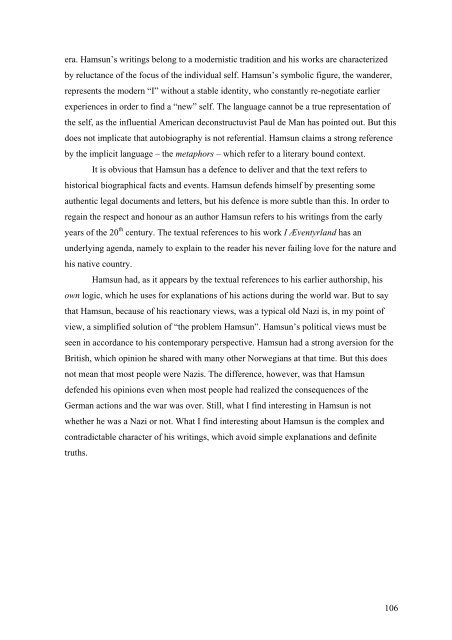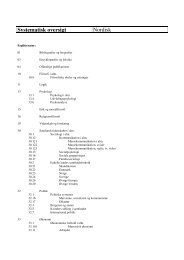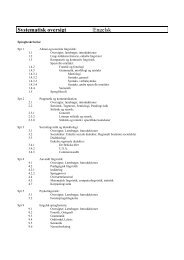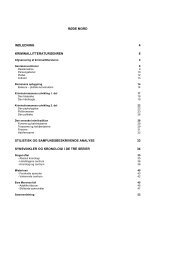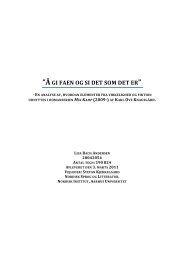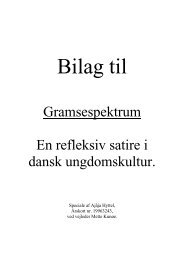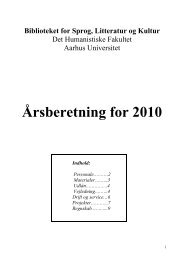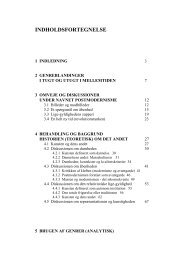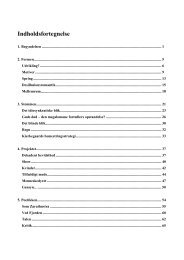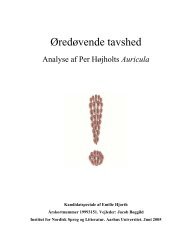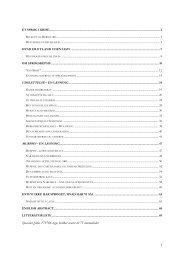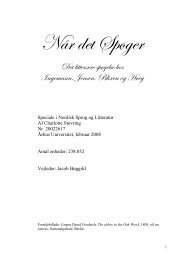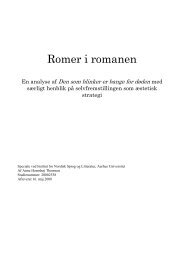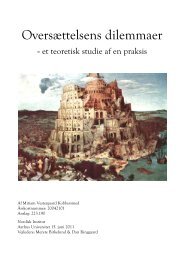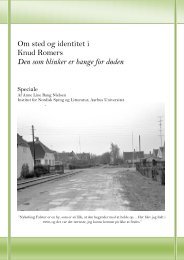Mellan sanning och lögn
Mellan sanning och lögn
Mellan sanning och lögn
Create successful ePaper yourself
Turn your PDF publications into a flip-book with our unique Google optimized e-Paper software.
era. Hamsun’s writings belong to a modernistic tradition and his works are characterized<br />
by reluctance of the focus of the individual self. Hamsun’s symbolic figure, the wanderer,<br />
represents the modern “I” without a stable identity, who constantly re-negotiate earlier<br />
experiences in order to find a “new” self. The language cannot be a true representation of<br />
the self, as the influential American deconstructuvist Paul de Man has pointed out. But this<br />
does not implicate that autobiography is not referential. Hamsun claims a strong reference<br />
by the implicit language – the metaphors – which refer to a literary bound context.<br />
It is obvious that Hamsun has a defence to deliver and that the text refers to<br />
historical biographical facts and events. Hamsun defends himself by presenting some<br />
authentic legal documents and letters, but his defence is more subtle than this. In order to<br />
regain the respect and honour as an author Hamsun refers to his writings from the early<br />
years of the 20 th century. The textual references to his work I Æventyrland has an<br />
underlying agenda, namely to explain to the reader his never failing love for the nature and<br />
his native country.<br />
Hamsun had, as it appears by the textual references to his earlier authorship, his<br />
own logic, which he uses for explanations of his actions during the world war. But to say<br />
that Hamsun, because of his reactionary views, was a typical old Nazi is, in my point of<br />
view, a simplified solution of “the problem Hamsun”. Hamsun’s political views must be<br />
seen in accordance to his contemporary perspective. Hamsun had a strong aversion for the<br />
British, which opinion he shared with many other Norwegians at that time. But this does<br />
not mean that most people were Nazis. The difference, however, was that Hamsun<br />
defended his opinions even when most people had realized the consequences of the<br />
German actions and the war was over. Still, what I find interesting in Hamsun is not<br />
whether he was a Nazi or not. What I find interesting about Hamsun is the complex and<br />
contradictable character of his writings, which avoid simple explanations and definite<br />
truths.<br />
106


